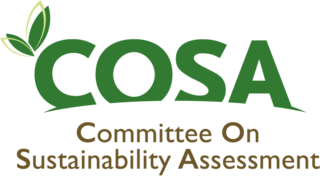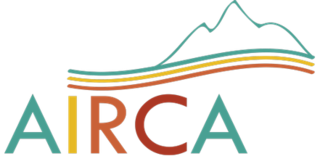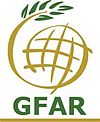
The Food and Agriculture Organization of the United Nations (FAO) is a specialized agency of the United Nations that leads international efforts to defeat hunger and improve nutrition and food security. Its Latin motto, fiat panis, translates to "let there be bread". It was founded on 16 October 1945.
The International Treaty on Plant Genetic Resources for Food and Agriculture, is a comprehensive international agreement in harmony with the Convention on Biological Diversity, which aims at guaranteeing food security through the conservation, exchange and sustainable use of the world's plant genetic resources for food and agriculture (PGRFA), the fair and equitable benefit sharing arising from its use, as well as the recognition of farmers' rights. It was signed in 2001 in Madrid, and entered into force on 29 June 2004.

Food security is the state of having reliable access to a sufficient quantity of affordable, nutritious food. The availability of food for people of any class, gender or religion is another element of food security. Similarly, household food security is considered to exist when all the members of a family, at all times, have access to enough food for an active, healthy life. Individuals who are food-secure do not live in hunger or fear of starvation. Food security includes resilience to future disruptions of food supply. Such a disruption could occur due to various risk factors such as droughts and floods, shipping disruptions, fuel shortages, economic instability, and wars. Food insecurity is the opposite of food security: a state where there is only limited or uncertain availability of suitable food.

World Food Day is an international day celebrated every year worldwide on October 16 to commemorate the date of the founding of the United Nations Food and Agriculture Organization in 1945. The day is celebrated widely by many other organizations concerned with hunger and food security, including the World Food Programme, the World Health Organization and the International Fund for Agricultural Development. WFP received the Nobel Prize in Peace for 2020 for their efforts to combat hunger, contribute to peace in conflict areas, and for playing a leading role in stopping the use of hunger in the form of a weapon for war and conflict.

The International Water Management Institute (IWMI) is a non-profit international water management research organisation under the CGIAR with its headquarters in Colombo, Sri Lanka, and offices across Africa and Asia. Research at the Institute focuses on improving how water and land resources are managed, with the aim of underpinning food security and reducing poverty while safeguarding the environment.

A smallholding or smallholder is a small farm operating under a small-scale agriculture model. Definitions vary widely for what constitutes a smallholder or small-scale farm, including factors such as size, food production technique or technology, involvement of family in labor and economic impact. There are an estimated 500 million smallholder farms in developing countries of the world alone, supporting almost two billion people. Smallholdings are usually farms supporting a single family with a mixture of cash crops and subsistence farming. As a country becomes more affluent, smallholdings may not be self-sufficient, but may be valued for providing supplemental sustenance, recreation, and general rural lifestyle appreciation. As the sustainable food and local food movements grow in affluent countries, some of these smallholdings are gaining increased economic viability in the developed world as well.
Promoting Local innovation in ecologically oriented agriculture and NRM, known as PROLINNOVA, is an NGO-initiated international learning network to promote local innovation in ecologically oriented agriculture and Natural resource management. It is a "Global Partnership Programme" under the umbrella of the Global Forum on Agricultural Research (GFAR). The focus of PROLINNOVA is on recognising the dynamics of indigenous knowledge and enhancing capacities of farmers to adjust to change – to develop their own site-appropriate systems and institutions of resource management so as to gain food security, sustain their livelihoods and safeguard the environment. The essence of sustainability lies in the capacity to adapt.
The World Forestry Congress (WFC) is the largest and most significant gathering of the world's forestry sector and it has been held every six years since 1926 under the auspices of the Food and Agriculture Organization (FAO) of the United Nations, organized by the government of the host country. It is a forum for the sharing of knowledge and experience regarding the conservation, management and use of the world's forests, and covers such issues as international dialogue, socio-economic and institutional aspects, and forest policies.

The Committee on Sustainability Assessment (COSA) is a global consortium of development institutions that work collaboratively to advance sustainability learning with systematic and science-based measurement. COSA applies a pragmatic and collective approach for using scientific methods to develop indicators, tools, and technologies to measure the distinct social, environmental, and economic impacts and are applied in performance monitoring, evaluation, return on investment (ROI) calculation, and impact assessment. COSA has a public mission to open its scientific methods and metrics up to widespread use.

The International Day of Forests was established on the 21st day of March, by resolution of the United Nations General Assembly on November 28, 2013. Each year, various events celebrate and raise awareness of the importance of all types of forests, and trees outside forests, for the benefit of current and future generations. Countries are encouraged to undertake efforts to organize local, national, and international activities involving forests and trees, such as tree planting campaigns, on International Day of Forests. The Secretariat of the United Nations Forum on Forests, in collaboration with the Food and Agriculture Organization, facilitates the implementation of such events in collaboration with governments, the Collaborative Partnership on Forests, and international, regional and subregional organizations. International Day of Forests was observed for the first time on March 21, 2013.
Crops For the Future, known by its acronym CFF, is an independent international organisation with a mandate to promote and facilitate the greater use of neglected and underutilised crops for enhanced diversification of agricultural systems and human diets, particularly for the benefit of poor people in developing countries. Crops for the Future is the only such organisation exclusively dedicated to an agenda increasingly recognised as important to achieving food security in a sustainable manner and making use of local agricultural biodiversity. Crops for the Future is based in Semenyih, Malaysia, and is governed by a Board of Directors, including a representative of the Government of Malaysia.
Soil governance refers to the policies, strategies, and the processes of decision-making employed by nation states and local governments regarding the use of soil. Globally, governance of the soil has been limited to an agricultural perspective due to increased food insecurity from the most populated regions on earth. The Global Soil Partnership, GSP, was initiated by the Food and Agriculture Organization (FAO) and its members with the hope to improve governance of the limited soil resources of the planet in order to guarantee healthy and productive soils for a food-secure world, as well as support other essential ecosystem services.

Gender inequality both leads to and is a result of food insecurity. According to estimates, women and girls make up 60% of the world's chronically hungry and little progress has been made in ensuring the equal right to food for women enshrined in the Convention on the Elimination of All Forms of Discrimination Against Women. Women face discrimination both in education and employment opportunities and within the household, where their bargaining power is lower. On the other hand, gender equality is described as instrumental to ending malnutrition and hunger. Women tend to be responsible for food preparation and childcare within the family and are more likely to be spent their income on food and their children's needs. The gendered aspects of food security are visible along the four pillars of food security: availability, access, utilization and stability, as defined by the Food and Agriculture Organization.

The Association of International Research and Development Centers for Agriculture (AIRCA) is an international, non-profit alliance focused on increasing food security by supporting smallholder agriculture and rural enterprise within healthy, sustainable and climate-smart landscapes.

Young Professionals for Agricultural Development (YPARD) is an international movement for young professionals. YPARD operates as a network in 72 countries through its chapters. This multi-stakeholder platform's main mission is to serve as a collective global network that enables young professionals to realize their full potential and contribute proactively towards innovative and sustainable agricultural development.

Global Open Data for Agriculture and Nutrition (GODAN) is an initiative that seeks to "support global efforts to make agricultural and nutritionally relevant data available, accessible, and usable for unrestricted use worldwide. The initiative focuses on building high-level policy as well as public and private institutional support for open data."

Mudnakudu Channabasappa Nandeesha was a development researcher, innovative aquaculture development worker and educator. He is recognized for making critical contributions to the rapid growth of aquaculture by applying research to key bottlenecks to fish production. In India, he conducted successful pioneering field tests of Ovaprim, an ovulating agent, under different agro-climatic conditions to help remove a critical early barrier for freshwater fish breeding. His significant scientific contributions include simplified breeding technology for cyprinids and development of feeds and feeding techniques appropriate to rural aquaculture, and helping improve and spread the practices of small scale fish farming at a time when most attention was on large scale producers. He wrote a regular and widely acclaimed column in Network of Aquaculture Centers in Asia-Pacific (NACA) Aquaculture Asia magazine on farmer innovations in aquaculture. He was described as an "ambassador for aquaculture" and was especially noted for promoting aquaculture for the disadvantaged poor households and women. Along with Michael New, in 2003 he was a founding member of the not-for-profit organisation, Aquaculture without Frontiers. While encouraging poor people to take up aquaculture, he was also a pioneer in promoting equity for women, who had been neglected in the aquaculture boom. Throughout his career, he was in the forefront of initiatives to upgrade the professionalism of fisheries and aquaculture experts, and inspired peers and students in critical new directions.
Digital agriculture, sometimes known as smart farming or e-agriculture, is tools that digitally collect, store, analyze, and share electronic data and/or information in agriculture. The Food and Agriculture Organization of the United Nations has described the digitalization process of agriculture as the digital agricultural revolution. Other definitions, such as those from the United Nations Project Breakthrough, Cornell University, and Purdue University, also emphasize the role of digital technology in the optimization of food systems.

Endorsed in December 2017, the United Nations Decade of Family Farming 2019-2028 seeks to place family farming at the center of national public policies and investments. In declaring this decade, the United Nations General Assembly recognized the importance of family farming in reducing poverty and improving global food security. The UN Decade of Family Farming is led by the Food and Agriculture Organization (FAO) and the International Fund for Agricultural Development (IFAD) in collaboration with governments and civil society organizations.

Sustainable Development Goal 2 aims to achieve "zero hunger". It is one of the 17 Sustainable Development Goals established by the United Nations in 2015. The official wording is: "End hunger, achieve food security and improved nutrition and promote sustainable agriculture". SDG 2 highlights the "complex inter-linkages between food security, nutrition, rural transformation and sustainable agriculture". According to the United Nations, there were up to 757 million people facing hunger in 2023 – one out of 11 people in the world, which accounts for slightly less than 10 percent of the world population. One in every nine people goes to bed hungry each night, including 20 million people currently at risk of famine in South Sudan, Somalia, Yemen and Nigeria.














